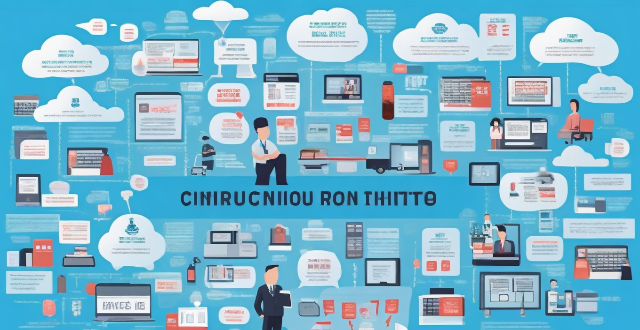Policies Environment

How do biosafety policies impact the research and development of new drugs and vaccines ?
Biosafety policies play a crucial role in drug and vaccine development by promoting safety, protecting public health, preserving the environment, and fostering scientific progress. These policies provide guidelines for handling hazardous materials, maintaining a clean laboratory environment, and preventing accidental exposure or contamination. By adhering to these standards, researchers can work more safely and effectively, reducing the risk of accidents or injuries that could slow down or halt their work. Additionally, biosafety policies help protect public health during clinical trials, minimize the risk of adverse reactions or side effects, and ensure that any new drugs or vaccines are safe before they reach the market. Biosafety policies also govern the disposal of hazardous waste materials and prevent accidental spills or releases of dangerous substances, protecting the environment from long-lasting harm. Finally, these policies promote collaboration and information sharing among researchers, leading to faster and more efficient drug and vaccine development while ensuring that research findings are reliable and reproducible.

How do human activities impact the environment and what ethical responsibilities do we have ?
Summary: Human activities such as pollution, deforestation, overfishing, and climate change have a significant negative impact on the environment. To fulfill our ethical responsibility towards the environment, we should reduce, reuse, recycle, support sustainable practices, advocate for environmental protection, and educate others about the importance of preserving the planet for future generations.

In what ways do inclusive policies contribute to economic growth and development ?
Inclusive policies are crucial for economic growth as they ensure benefits reach all societal segments. Key contributions include increased access to education, improved health outcomes, enhanced labor market participation, promotion of social cohesion, stimulation of domestic consumption, and attraction of foreign investment. These policies create a virtuous cycle benefiting both the economy and society's well-being.

How do environmental subsidy policies influence consumer behavior ?
Environmental subsidy policies aim to promote sustainable practices and reduce environmental harm by offering financial incentives. These policies can encourage green consumption, lower the cost of eco-friendly products, and raise awareness about environmental issues. However, they also face challenges such as insufficient incentives, unintended consequences, and limited scope and impact. Therefore, careful design and evaluation are crucial for ensuring their effectiveness in promoting sustainable development.

Are there any drawbacks to implementing environmental subsidy policies ?
This text discusses the potential drawbacks of environmental subsidy policies, including increased costs for consumers, market distortion, administrative challenges, overreliance on subsidies, and unintended negative environmental impacts. It emphasizes the importance of careful consideration and effective strategies to maximize benefits while minimizing drawbacks.

What measures should be taken to ensure compliance with biosafety policies in laboratories and research facilities ?
Ensuring biosafety compliance in laboratories and research facilities is crucial for the protection of personnel, the environment, and research subjects. Measures such as regular training sessions, competency assessments, clear policies and procedures, proper use of personal protective equipment (PPE), effective waste management, and well-developed emergency response plans should be implemented to create a safe working environment.

Can circular economy policies help reduce waste and pollution ?
Circular economy policies can significantly reduce waste and pollution by promoting reuse, recycling, and cleaner production methods. These policies incentivize businesses to design products that are easier to maintain and recycle, support sustainable business models like leasing and Product as a Service (PaaS), and encourage consumers to make environmentally friendly choices. Through such measures, the need for new raw materials decreases, energy consumption is reduced, and waste is diverted from landfills, all of which contribute to lower emissions and a cleaner environment.

What policies and international agreements aim to protect biodiversity ?
The text provides an overview of various policies and international agreements that aim to protect biodiversity, including the Convention on Biological Diversity (CBD), the United Nations Framework Convention on Climate Change (UNFCCC), the Ramsar Convention, the International Union for Conservation of Nature (IUCN), the World Wildlife Fund (WWF), the Nagoya Protocol, the Global Environment Facility (GEF), national policies and legislation, and the Great Ape Project. These initiatives are crucial for maintaining ecosystem health and human well-being, but face challenges in implementation and enforcement.

How do environmental subsidy policies affect sustainable development ?
This topic summary discusses the impact of environmental subsidy policies on sustainable development. These policies aim to promote renewable energy, reduce pollution, conserve natural resources, and promote eco-friendly technologies through financial incentives provided by governments. However, challenges such as limited funding, inefficient allocation of funds, and unintended consequences can hinder their effectiveness. To maximize their impact, it is crucial to ensure efficient allocation of funds and consider the broader impact of these policies.

What are the benefits of implementing circular economy policies ?
Implementing circular economy policies brings environmental, economic, and social benefits. Environmentally, it reduces resource consumption, lowers greenhouse gas emissions, and improves waste management. Economically, it creates jobs, saves costs, and drives innovation. Socially, it ensures resource security, improves public health, and empowers consumers. Overall, adopting these policies shifts towards a sustainable system that prioritizes long-term planetary health.

How do immigration policies impact the social integration of immigrants ?
The text discusses the impact of immigration policies on social integration, highlighting factors such as access to basic services, employment opportunities, language proficiency, cultural sensitivity, family reunification, and legal status. It argues that policies promoting these aspects can facilitate better integration of immigrants into society, creating a more inclusive environment where they feel valued and respected.

How do biosafety policies differ across countries and regions ?
Biosafety policies are crucial for protecting public health and the environment from potential risks associated with biotechnology. These policies vary significantly across countries and regions due to differences in regulatory frameworks, cultural values, economic resources, and technological advancements. The United States has a well-established regulatory framework for biosafety, while the European Union has a strict regulatory framework. In Asia, China and India have relatively new biosafety laws. Cultural values also play a significant role in shaping biosafety policies across countries and regions. Economic resources can impact the implementation and enforcement of biosafety policies, and technological advancements can introduce new challenges and opportunities.

What is the correlation between immigration policies and entrepreneurship ?
Immigration policies significantly impact entrepreneurship by influencing talent access, regulatory environments, cultural diversity, and economic opportunities. Talent-friendly policies like Canada's Express Entry System and the U.S. H-1B Visa attract skilled immigrants, enhancing competitiveness. Supportive regulatory frameworks, such as Australia's Business Innovation and Investment Program and the UK's Tier 1 Entrepreneur Visa, simplify business establishment processes. Diversity-promoting policies, like New Zealand's Residence Programme and Germany's Blue Card EU, foster innovative solutions through varied perspectives. Economic opportunities arise from policies like Sweden's Startup Visa and Ireland's Startup Entrepreneur Programme, which create market gaps and support immigrant entrepreneurs. Governments should implement policies encouraging entrepreneurship among immigrants and local populations.

What role do international organizations play in promoting environmental subsidy policies ?
International organizations play a crucial role in promoting environmental subsidy policies by providing information, facilitating cooperation, offering financial support, setting standards, and engaging in advocacy efforts.

How can businesses adopt and promote inclusive policies within their organization ?
Inclusive policies are essential for businesses to foster a diverse and inclusive workplace culture. To adopt and promote inclusive policies, organizations should conduct a diversity and inclusion audit, develop inclusive policies and practices, train employees on inclusivity, foster a culture of inclusivity, and evaluate and refine inclusive policies regularly.

Do immigration policies influence language preservation or loss within communities ?
Immigration policies can significantly affect language preservation and loss in communities by changing demographics, shaping language education, community support, and intergenerational transmission. Open policies may increase diversity, while restrictive ones can lead to language loss.

What are some examples of successful environmental subsidy policies ?
Successful environmental subsidy policies include renewable energy incentives, energy efficiency grants, green transport initiatives, agricultural sustainability programs, waste management and recycling incentives, carbon pricing mechanisms, water conservation policies, and forestry and biodiversity protection measures. These policies aim to promote sustainable practices and reduce pollution by providing financial incentives for environmentally friendly activities. Examples of such policies include feed-in tariffs, renewable portfolio standards, home insulation programs, appliance rebate schemes, public transport subsidies, electric vehicle incentives, conservation reserve programs, organic farming grants, pay-as-you-throw programs, bottle deposit legislation, cap-and-trade systems, carbon taxes, water efficiency standards, rainwater harvesting incentives, payments for ecosystem services, and conservation easements. By aligning private interests with public goods through economic incentives, these policies achieve collective benefits for our planet and future generations.

What is the role of government policies in promoting the adoption of clean production technologies ?
Government policies are crucial in promoting clean production technologies by providing regulatory frameworks, fiscal incentives, information and education, funding for research and development, and international cooperation. These policies create an enabling environment for businesses to adopt cleaner technologies, leading to a more sustainable future.

What challenges do countries face in implementing circular economy policies ?
Implementing circular economy policies is a complex process that countries face numerous challenges. These include lack of awareness and understanding, economic and industrial structure, legal and regulatory framework, market conditions and business practices, as well as social and cultural factors. Addressing these challenges is crucial for the successful implementation of circular economy policies, which can bring significant environmental and socioeconomic benefits.

How do renewable energy policies influence innovation and technology development ?
Renewable energy policies are crucial for driving innovation and technology development in the clean energy sector. These policies provide incentives for research, investment, and deployment, creating a favorable environment for technological advancements and innovation. Government support and funding, regulatory frameworks, market incentives, and collaboration and partnerships are all essential factors that influence innovation and technology development in this sector. By providing financial assistance, setting standards and requirements, creating demand for clean energy solutions, and fostering collaboration between different stakeholders, renewable energy policies help to accelerate the development of new technologies and improve existing ones. As we continue to face challenges related to climate change and energy security, it is essential that we continue to invest in renewable energy solutions and support policies that encourage innovation and progress in this field.

Can environmental subsidy policies help reduce carbon emissions ?
Environmental subsidy policies can help reduce carbon emissions by promoting renewable energy, enhancing energy efficiency, supporting waste reduction initiatives, and funding research and development of carbon capture and storage technologies. However, these policies must be carefully designed and adequately funded to avoid market distortions and ensure long-term sustainability without creating dependence on government support.

How do climate and environmental policies address the needs of vulnerable communities and ecosystems ?
Climate and environmental policies are essential for addressing the needs of vulnerable communities and ecosystems. These policies aim to reduce emissions and pollution, protect natural resources, build resilience and adaptation capacity, and promote environmental justice. By implementing measures such as promoting renewable energy sources, establishing protected areas, providing funding for climate adaptation projects, and ensuring equitable access to clean energy technologies, these policies can significantly improve the health and quality of life for vulnerable communities while also contributing to global efforts to combat climate change.

How do immigration policies impact the education system ?
Immigration policies have a significant impact on the education system, affecting student diversity, resource allocation, and quality of education. Increased student diversity can be beneficial but also presents challenges for educators. Changes in resource allocation may strain budgets and impact access to educational resources for immigrant families. Challenges related to the quality of education include meeting the needs of students with varying levels of academic preparedness and addressing discrimination or bias in the education system. It is important for educators and policymakers to consider these factors when developing policies and practices related to immigration and education.

Can you provide examples of successful biosafety policies and their impact on public health ?
Biosafety policies are crucial for protecting public health by preventing the release of hazardous biological agents into the environment. Successful biosafety policies include Institutional Biosafety Committees (IBCs), biosecurity measures in laboratories, and vaccine safety monitoring. These policies help reduce risks associated with hazardous materials, prevent bioterrorism, maintain public trust, and enhance vaccine safety. Overall, successful biosafety policies play a vital role in protecting public health.

How does a Series Hybrid Electric Vehicle impact the environment ?
Series hybrid electric vehicles (SHEVs) have a positive impact on the environment through reduced emissions and improved fuel efficiency. However, challenges such as battery production and waste management must be addressed to maximize their environmental benefits. The overall impact also depends on factors like the source of electricity for charging and vehicle design efficiency.

How do climate change negotiations influence national environmental policies ?
The influence of climate change negotiations on national environmental policies is significant, as they set international targets and promote technology transfer, financial support mechanisms, adaptation measures, stronger legal frameworks, and public awareness. These discussions help countries develop comprehensive policies that integrate climate considerations across various sectors, ensuring policy coherence and effective action towards global climate goals.

What role does public health play in the implementation of biosafety policies ?
Public health is crucial for implementing biosafety policies, which aim to contain and manage biological agents that may pose a risk to human health, animal health, or the environment. Public health professionals play key roles in surveillance and disease detection, risk assessment and management, laboratory biosafety, vaccination programs, public education and awareness, policy development and implementation, emergency response, and international collaboration. By monitoring disease trends, assessing risks, maintaining laboratory safety, promoting vaccination, educating the public, developing policies, responding to emergencies, and collaborating internationally, public health professionals help protect individuals and communities from biological hazards.

How do ecological taxes compare to other environmental policies, such as cap-and-trade systems ?
The text discusses the comparison of two environmental policies: ecological taxes and cap-and-trade systems. It explains what these policies are, their advantages, disadvantages, and concludes that the choice between them depends on political feasibility, administrative capacity, and public acceptance.

Can climate variability be mitigated through international agreements and policies ?
The text discusses the potential of international agreements and policies to mitigate climate variability, highlighting their roles in setting goals, promoting cooperation, creating legal obligations, and raising awareness. It also explores the impact of various policies on emission reduction, adaptation, research and development, and education. However, it acknowledges challenges such as political will, economic considerations, equity and justice, and compliance and enforcement. The text concludes that while these measures are crucial, they must be part of a comprehensive strategy that includes local efforts, technological advancements, and individual actions.

In what ways do immigration policies affect the cultural diversity of a country ?
Immigration policies play a significant role in shaping the cultural diversity of a country. Policies that promote multiculturalism, facilitate family reunification, and provide opportunities for legal migration can enhance cultural diversity. In contrast, strict immigration controls, deportation policies, and anti-immigrant sentiments can hinder it.